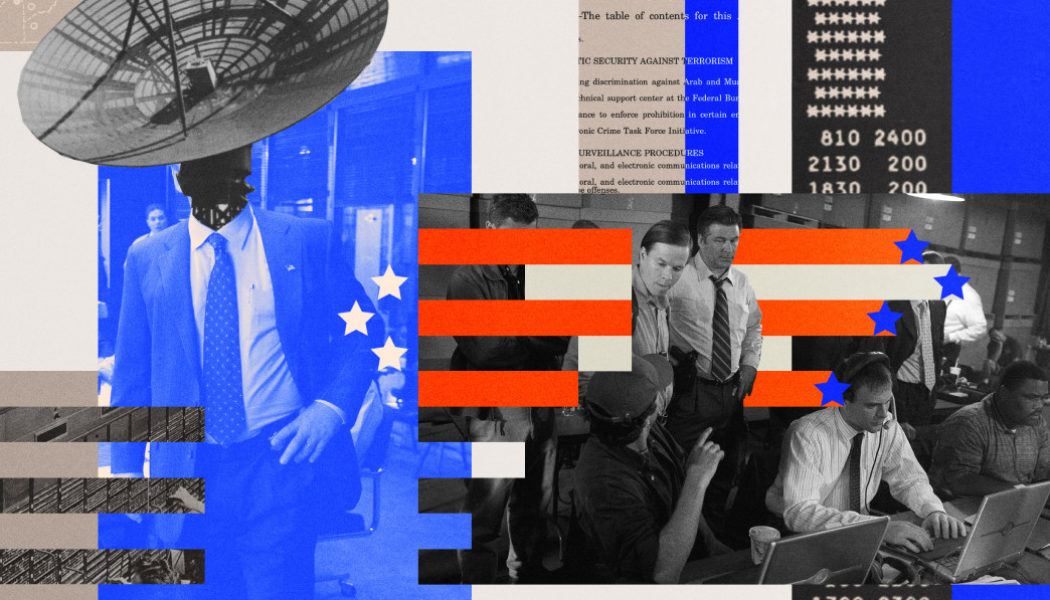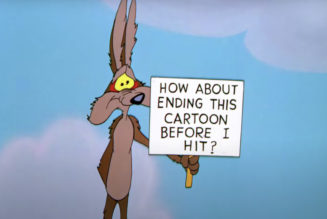
The difference, in Scorsese’s self-consciously post-9/11 gangster flick, is the movie’s obsession with the surveillance state. The Departed cribs the ludicrous setup of the Hong Kong film Infernal Affairs: the police have a mole in the mafia (Leonardo DiCaprio), and the mafia has a mole in the police (Matt Damon). Narrative destiny tasks them with finding the identity of their counterpart, a conceit that sets off a converging mouse hunt — or maybe, in this case, a rat hunt.
Outside of being a showcase of varying degrees of convincing Boston accents, The Departed is a movie about tracking identities, wiretapped phones, and the autocratic invasion of privacy. In one infamous scene, the police have the jump on a shady exchange between Jack Nicholson’s goons and an inscrutable Taiwanese gang in need of some microprocessors. More urgently, the meeting site has been staked out with surveillance equipment: video cameras and phone location tracking. It’s Alec Baldwin’s operation, and he’s about to finally nail Boston’s most notorious criminal. “We’ve been after this cocksucker for a long time,” he says, before grabbing his balls. Admiring the technologies and policies empowering his bust, Baldwin excitedly shouts, “Patriot Act! Patriot Act! Patriot Act! I love it! I love it! I love it!”
The USA Patriot Act of 2001 is, of course, the former President George W. Bush-era legislation that expanded the government’s surveillance capacities for law enforcement, including aggressive use of wiretaps. It was established to empower counterterrorism efforts, but critics argue that its legacy opened the door to policies that have undermined Americans’ constitutional freedoms: the broad collection of personal data, from phone records to book-borrowing history, suddenly obtainable without warrants; and the collection of digital footprints, from browsing histories to social media posts. The breadth of what private information can and will be surveilled has been exacerbated by no transparency and little accountability.
Scorsese didn’t know the full sweep of the Patriot Act when he wrote The Departed in the early ‘00s. But the moment resonates years later as one of the film’s darkest punch lines: a figure in law enforcement gleefully celebrating an abuse of power.
Paranoia is a common thread in Scorsese’s work, from the last act of GoodFellas to the psychosis of Shutter Island. But The Departed shows us a world where the conspiracy is real. Nicholson, the big bad of the film, turns out to be an informant for the FBI.
In the end, Scorsese’s moral universe argues that there isn’t much of one. Any character in The Departed with ethical scruples — or who makes any attempt to do the right thing — ends up at least disappointed and, in most cases, dead. No one questions the surveillance state, especially when it can give them a leg up. In America, the slope is just too slippery.
For all its blunt pronouncements about how we live in this country, it’s a little funny that The Departed is a remake of a Hong Kong film. While the plot beats are very similar, the end is where it diverges most from Infernal Affairs. The inspiration for Damon’s character, played by a perfectly snake-like Andy Lau, ultimately gets away. But read through the Buddhist convictions of Infernal Affairs, it’s actually the DiCaprio inspo who, in death, is finally able to escape the hell of existence. The movie even goes as far as putting that on the screen: “He who is in Continuous Hell never dies. Longevity is a big hardship in Continuous Hell.” Which is to say: the bad guy might win, but what kind of reward is living in this world?
The nearly last shot of The Departed has Damon looking down the barrel of Mark Wahlberg’s gun in an unexplained turn of cosmic justice. It’s a very Scorsese move to have basically all of his characters get whacked. But right before he gets a bullet in his head, Damon musters a final “okay” — a moment not of fear or anger but of resignation.
I’m not sure which movie has the more cynical idea: that we only escape this hell in death or that all the shitty things in this world have to be taken as they are.
But back to that Baldwin shouting scene. At one point, the techie who set up the video cameras complains about not having more of “that Homeland Security money,” suggesting that there is a better, more invasive surveillance apparatus to be had. Later, Baldwin kicks the shit out of him, seemingly in agreement.








